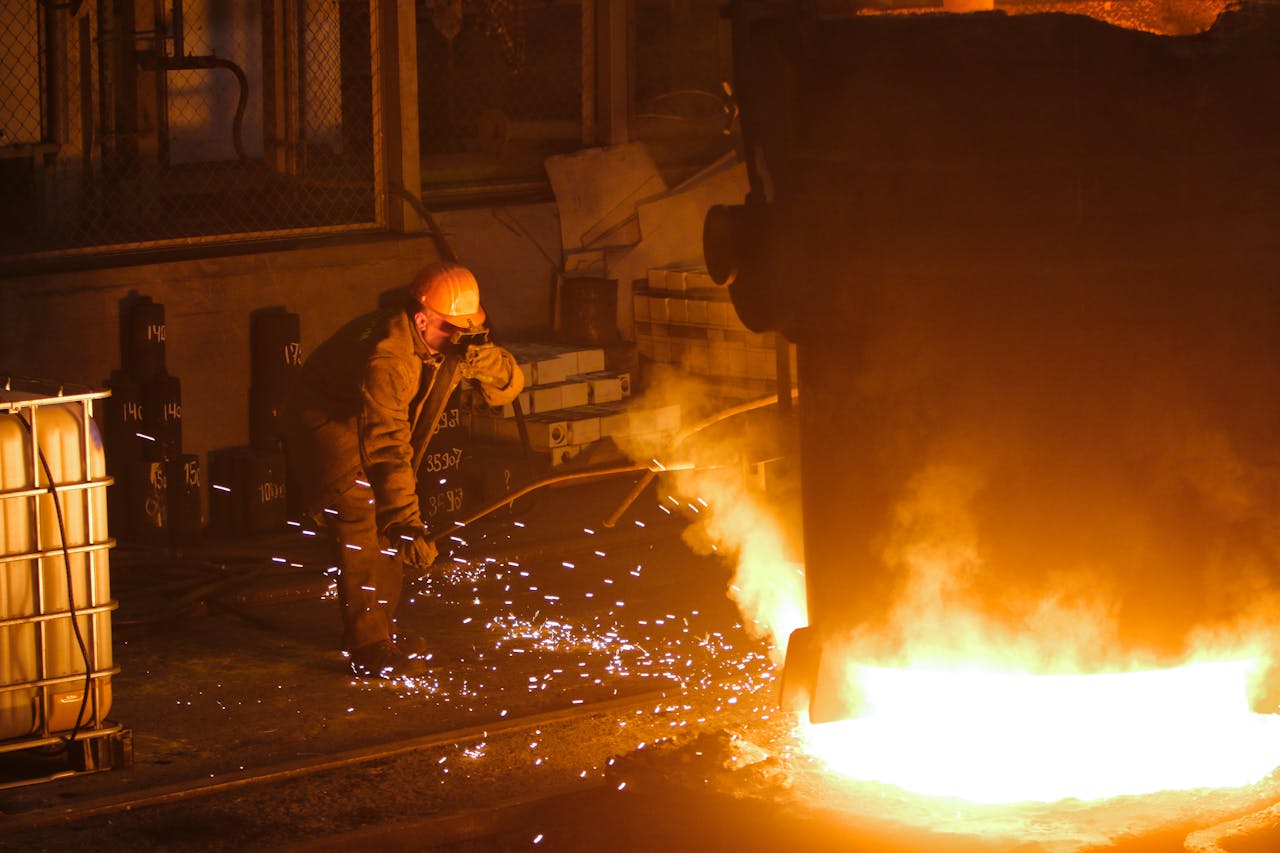British Steel Executives Could Face Criminal Prosecution for Defying Government Orders, Minister Warns

Why Criminal Prosecution Is a Potential Outcome for UK Steel Industry Execs.
Executives at British Steel risk criminal prosecution if they fail to comply with government instructions designed to protect the future of the UK steel industry, the industry minister has warned.
In a high-stakes move aimed at safeguarding thousands of jobs and the country’s primary steelmaking capabilities, Industry Minister Sarah Jones told Sky News that company directors could face criminal sanctions if they ignore legally binding directives under a new emergency steel bill.
Speaking to presenter Kamali Melbourne, Jones said the Prime Minister was taking “decisive action” in response to what she described as an “existential threat” to British steel production.
The legislation, set to be debated in Parliament today, would grant the Business Secretary powers to directly intervene in British Steel’s operations.
“If British Steel refuses to comply with instructions—such as continuing blast furnace operations or purchasing raw materials—its executives could face criminal prosecution,” Jones stated. “This isn’t symbolic. There will be legal consequences if they defy the government’s orders.”
The minister stressed the irreversible damage that could result from non-compliance. “If blast furnaces are shut down in an unplanned way, they become unusable. The steel solidifies inside them and that’s it—they cannot be restarted,” she warned.
Emergency Powers to Prevent Steel Industry Collapse
The proposed legislation would allow the government to act in the public interest by instructing British Steel to keep its blast furnaces operational and retain employees. If the company refuses to follow those instructions, ministers could prosecute those in charge and take over operations.
“This bill allows us to give notice to the company, instructing them to buy the raw materials and maintain blast furnace activity. If they refuse, there are criminal sanctions, and the government has the power to intervene directly,” Jones explained.
She added that the legislation is “tightly focused” on the blast furnaces and framed around public safety and the national interest. However, the consequences for non-compliance are clear and serious.
Stark Choice for MPs and Executives
Jones made it clear that Parliament now faces a critical decision: support the bill and preserve the UK’s steelmaking industry, or risk seeing it collapse entirely. She commented;
“MPs must choose whether to back the powers that let us act in the national interest, or to accept the end of primary steelmaking in the UK and the loss of thousands of jobs,”
The threat of criminal sanctions adds a new layer of pressure on British Steel’s executives, who are now legally obligated to follow any government instruction issued under the proposed bill.
Legal Implications and the Role of Criminal Defence Solicitors
Should criminal proceedings be initiated against British Steel executives, specialist criminal defence solicitors would play a critical role in their legal representation.
Facing allegations of non-compliance with government directives—particularly those backed by newly enacted legislation—would require expert legal guidance in both corporate and criminal law.
In cases such as this, we would be responsible for scrutinising the legality and clarity of the government’s orders, the timeline and method of delivery, and whether company executives were given a reasonable opportunity to comply.
Furthermore, we would assess whether the charges are proportionate and grounded in statute, or whether there is scope to challenge them under principles of due process, business necessity, or statutory interpretation.
In high-profile cases involving criminal liability tied to corporate decision-making, it is essential for executives to seek immediate legal counsel to ensure their rights are protected and that all procedural obligations are met.
In such cases, we know how important it is to act swiftly to build a robust defence strategy, liaise with investigators, and, where necessary, represent the accused at every stage of the criminal justice process.
How we can Help
For more information about criminal defence for regulatory issues please don’t hesitate to contact us on 0161 243 0299 or email us.


